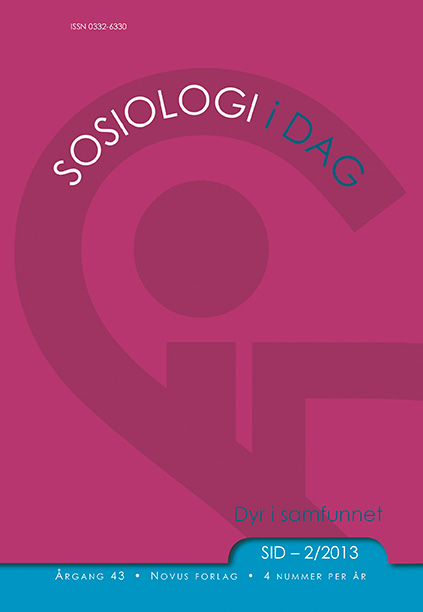Sammendrag
Kategorin 'djur' noteras sällan varken diskursivt eller materiellt i texter om mellanmänskliga relationer trots att kategorin kan läsas som central för sammanhanget/argumentationen. I denna essä får Aristoteles teori om det naturliga slaveriet utgöra bakgrund till tolkningar av texter av författaren och aktivisten Olympe de Gouges (1748-1793). Med hjälp av referenser till djur och natur försvarade de Gouges under den franska revolutionen särskilt två kategorier av människor: främlingar/svarta och kvinnor. Här läses denna diskurs som en antites till den antika definitionen av den fullvärdiga människan/medborgaren och som ett bidrag till en icke-kolonial humanism vilken, med de Gouges som budbärare, straffades med just den politik den sökte avskaffa: våld och dödande.Authors who publish with this journal agree to the following terms:
Â
- Authors retain copyright and grant the journal right of first publication, with the work 1 year after publication simultaneously licensed under a Creative Commons Attribution License that allows others to share the work with an acknowledgement of the work's authorship and initial publication in this journal.
- Authors are able to enter into separate, additional contractual arrangements for the non-exclusive distribution of the journal's published version of the work (e.g., post it to an institutional repository or publish it in a book), with an acknowledgement of its initial publication in this journal.
